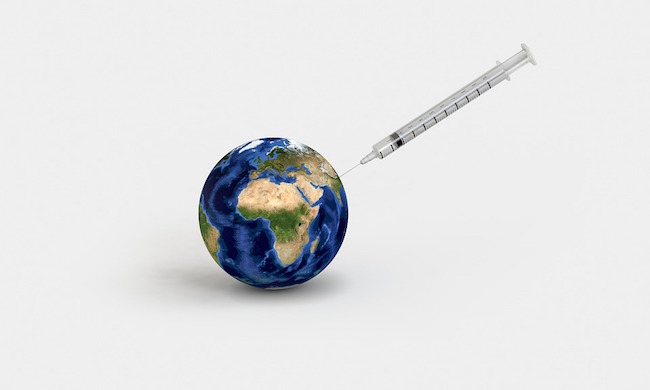The New “Normal”: We Do Have Some Say in All This By Brett Jordan for Global Research
In a televised CBS interview with Anthony Mason on April 2nd, Bill Gates issued a few key words that have since become iconic in the world of mainstream media. As has been the general trend whenever the famed co-founder of the Bill and Melinda Gates Foundation declares something that appears to implicate the personal lives of every other person on the planet, these words effectively set the tone for what would become an oft-repeated stanza across the globe.
Essentially, Gates advised that life is not expected to get back to “normal” until a thorough, international vaccination infrastructure has been implemented. On Fox News Sunday April 5th, Bill Gates specifically told host Chris Wallace that life “won’t get back to normal” until a vaccine is delivered to the “entire world.”
Within days of these rather bold prescriptions from the Microsoft founder, news headlines around the world were lit ablaze with the parroted advisory that life, as we know it, is “not expected to return to normal until a vaccine is available.”
Quoting directly from Canadian Prime Minister Trudeau during his nationwide address on April 8th,
“normality as it was before will not come back full-on until we get a vaccine for this…”
Similarly, European Commission President Ursula von der Leyen warned the public that life cannot be expected to resume any sense of former stability until a vaccine becomes widely available. While she was initially setting an optimistic (if you can call it that) timeline of the Fall of 2020, her predictions were cooled by the European Medicines Agency which suggested a more conservative arena of 12 to 18 months.
In the meantime, news media everywhere are essentially saying the same thing; life as we know it is not expected to return to normal until a vaccine program is in some kind of deliverable form for the entire world. Gates himself offered 18 months as a reasonable time frame and, in the interim, his recommendations are fairly transparent. As he explicitly stated during his CBS interview,
“the country’s leaders need to be clear: shutdown anywhere means shutdown everywhere.”
While these words were specifically addressed to the US, it is no mystery that the intentional audience here is humanity in general.
At any rate, the narrative has been set. As news headlines everywhere have told us, things are expected to be upside down until we are vaccinated on a nearly worldwide scale.
In the meantime, society en masse has now been successfully programmed to quietly sit still and wait out the ensuing lockdowns so that, eventually, our collective discomfort from a bleeding economy and progressive intimacy-starvation leads us to such a state of prolonged desperation where we’re more than happy to bare our arms (and our children’s arms) to the awaiting syringe.
By that time, we will have also been more than sufficiently indoctrinated in the so-called dangers of COVID-19 where we will be ready and ripened for the ‘solution’ to everything that has fragmented our societies since “Wuhan” first became a household name.
In a sobering article recently published in MIT Technology Review, Gideon Lichfield discusses his views of why social life, on a global scale, may never return to us in quite the same way at all. He warns that “as long as someone in the world has the virus, breakouts can and will keep recurring without stringent controls to contain them.”
Lichfield then proceeds to outline some rather cold possibilities of what typical life may come to look like in the future, including cell-phone location data for tracking unwitting risk offenders. He reports that this would not be for tracking merely the infected themselves, but ultimately for “people who’ve been in touch with known carriers of the virus”. In other words, we’re talking government policies of keeping tabs on pretty much everybody through constant smart phone monitoring.
He also asserts that
“we’ll restore the ability to socialize safely by developing more sophisticated ways to identify who is a disease risk and who isn’t, and discriminating – legally – against those who are.”
He suggests that possible methods may include universal screening of body temperature fluctuations, specific family size, and even annual income. While noting the very likely risk of creating even more social inequities, Lichfield’s concluding comments are simply that the onus will be on government officials to reflect on the propensity for increased social dysfunction and to work hard to guard against the exacerbation of it.




